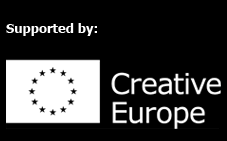On this first issue of encatcScholar…

By Cristina Ortega ENCATC President
“Rethinking Education Strategy and the relevance of producing highly skilled and versatile people who can contribute to innovation and entrepreneurship” (Androulla Vassiliou)
/encatcSCHOLAR is born to satisfy the demand of ENCATC members –academics, researchers and students: to exchange teaching methodologies and knowledge to use in the classroom. /encatcSCHOLAR is intended to provide reference tools for education and lifelong learning on cultural management and cultural policies.
ENCATC is the leading European network on Cultural Management and Cultural Policy education. It is a membership NGO gathering over 100 Higher Educational Institutions and cultural organisations in 40 countries. It holds the status of official partner of UNESCO and of observer to the Steering Committee for Culture of the Council of Europe. ENCATC is a long lasting platform for academics students, researchers, cultural operators, artists, and policy makers as well as the wider public. It was founded to exchange ideas, to structure and deliver accurate information and facilitate transnational and transectorial partnerships.
ENCATC activities focus on advocacy, networking, capacity building, research, mobility and knowledge transfer. Through eight Thematic Areas, a wide range of activities, events and projects, ENCATC contributes to the professionalization and sustainability of the cultural sector. It also stimulates innovative thinking by researching trends and developments that affect the future of arts and culture, by supporting businesses and organizations with strategy development by means of scenario planning, and by developing new curricula, services and business concepts based on these scenarios.
This initiative is intended to achieve the strand or objective of capacity building: educating professionals and students, by offering its members opportunities to enhance and strengthening their knowledge, skills, competencies and abilities. Through seminars, European projects, experts groups and training academies, ENCATC creates opportunities for the establishment of conditions allowing academics, researchers and professionals to engage in the “process of learning and adapting to changes”.
The objectives of developing /encatcSCHOLAR are: To develop an open tool that encourages participation and sharing in the creation of teaching materials; and to offer suggestions about some basic and accurate methodological approaches related to how to study emerging issues that affect public policies; present and analyze case analysis; and open debates on how to improve the management of the projects.
The first issue of /encatcSCHOLAR is made up of several sections: profiles, angles, case analysis, teaching experiences, proceedings and interviews; sections that have been designed to achieve the present needs but could be changed according to the new contexts.
Profiles intends to be a teaching tool for professors, useful for presentation in class of the world’s leading thinkers that have made important contributions to the development and professionalization of cultural management, as well as those who have influenced the establishment of public policies (their main conceptual approaches, major publications, biographical references, etc.).
Angles section should collect articles on connections of culture to other disciplines, focusing on discussing the challenges and opportunities that could arise from these interconnections, as well as highlighting innovative components that enrich and strengthen practice. Authors should close their discussion, outlining some questions to spark the discussion and the interest in studying in depth the impact of such interconnections in developing the cultural sector.
Case Analysis are made up of case studies presented as a scholarly tool to illustrate situations where cultural managers are facing crossroads, and need to analyze a variety of circumstances to make a well informed decision.
Proceedings is a space to present conferences proceedings and their conclusions, that often never have been published, thus losing the opportunity to follow up the evolution of the debates over time.
Interviews tries to give a voice to leading people in Europe (managers, politicians, artists, ex commissioners, etc). At the end of the interview, the interviewee raises some questions to the readers to encourage discussion and to activate critical thinking on the topics that have been presented.
Teaching-experience provides an opportunity for teachers to share in first person, practical ideas to meet their educational goals and to improve the teaching practice.
This new initiative is made possible thanks to the disinterested work of Melba G. Claudio-González. ENCATC would like to thank her for the work, time and innovative ideas she has devoted to this project.




